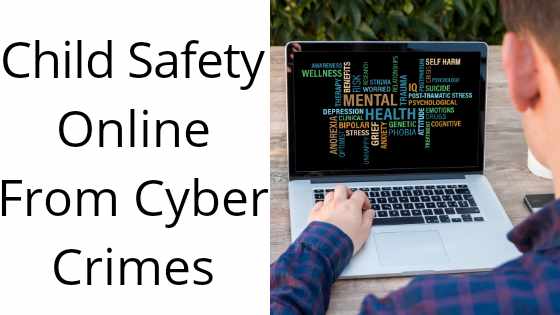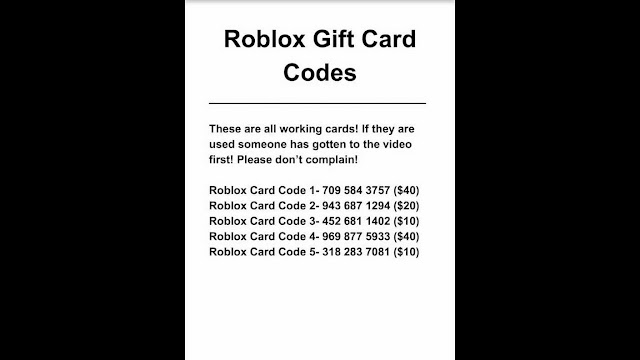Child Safety Online From Cyber Crimes in 2020
Child Safety Online From Cyber Crimes in 2020
A security professional made a very succinct observation about how parents and their children understand the risks whilst they are online it goes as follows: “Children and teenagers are fearless whilst their parents are clueless.”
Children have taken to the internet like ducks to water and have very few worries about their online activities. Whereas most parents are not technical enough to have true understanding of their children's online activity – furthermore may not understand the legal ramifications of their activities.
Most children and teenagers need to use the internet to do their homework, communicate with their friends, possibly shop online, keep up with the latest trends etc.
Most parents fear that their child may come to some harm as a result of their online activity. I.e. they are worried about their child meeting someone dangerous in a chat room, social networking site, online games site, etc who will befriend and gain the trust of the child and then in some way exploit or harm their child. Worse still it is very easy for someone manufacture an online persona which is completely false, i.e. very easy for predator to pretend they are a young teenage girl or boy whereas in fact they might be very much older.
In online games it is common for players to give the avatars (virtual representations of themselves) different physical characteristics and different descriptions of themselves compared to what they are in the real world. Thus it is very difficult for a child to identify whether the person they are chatting with is another child or an adult.
Parents may not realise that depending on which country you are in your child's activity online may result in either criminal charges or civil proceedings being brought against the child and or the parent – i.e. the child's / teenager's behaviour could be illegal.
For example downloading / copying music, images, software, files etc from the internet without paying for it and or getting explicit permission from the copyright holder is, generally in most jurisdictions, considered as theft of the material with varying penalties. There have been numerous cases around the world and especially in the USA where the copyright holders have pursued through the civil courts the parties involved.
Or another example is that the teenager is involved in deliberate hacking using very powerful point and click tools which are freely available from the internet to cause damage to a computer system or gain entry to it in some way. These tools are design so that the end user does not need any real technical knowledge to execute an attack! Again in most jurisdictions this kind of activity is considered illegal without explicit consent of the owner of the computer system.
Your or your child's computer system may become compromised when your child visits a website which has been compromised. Such sites may for example install rogue software – e.g. rouge diallers to reconfigure your dial up modem to use premium rate access or install spyware which can steal your banking passwords etc.
The following sections will try to provide parents with a few pointers so as to reduce the risks to their children whilst they are online.
General Pointers Of Cyber Security Of Child
You will need to tailor the following to suit your child's / teenager's age and maturity.
Make sure the computer(s) your child uses to access the internet is/are in the family / communal area as opposed to their bedroom or private space. This will give you a degree of control by allowing you to keep an eye on what they are doing and on what websites your child / teenager is visiting e.g. pornographic websites.
Depending on their age and maturity you may want to completely supervise their online session.
- Make sure you agree basic ground rules with the child for using the computer and the Internet. I.e. what they are allowed to do and what they are not allowed to do. How long they are allowed to surf the internet and or play games, etc.
- Never let your child use your credit card to buy goods or services online. They may surprise you and buy something inappropriate or illegal! Also, buy revealing your credit card details to your child you may be breaking the contract you have with your credit card provider and thus possibly negating the protection your credit card provider may offer you whilst you use your credit card online. If they need to buy something online you should buy it for them or in some countries special prepaid credit cards are available for teenagers to do online shopping. If you are not sure how, learn how to, but do not let them do it!
- Make sure their computer is secured at least to the minimum level of security described in "Minimum Security Steps ".
- Make sure they have their own “Limited User Account” on the computer for their computing and other Internet activities so that their action are contained and the damage they can do to your information and the computer system is limited and contained. This is particularly useful in containing damage that a virus / trojan / or spyware can do.
- Make sure you know all your child's passwords so that you can keep an eye on what they are doing. You should make it clear that you know their passwords and you will check what they have been getting up to. This is an excellent deterrent. However, you have to be tactful as to how you approach this since your child may "go underground" and carry out their surfing activities at a friend's house. Make sure you discuss with the parent's of your child's (or children's) friends how they control access to their computer systems.
- Lead by example - behave online how you would expect your child to behave online.
Pointers to reduce the risk to your child from Cyber Crimes
- Consider installing filtering software to filter what your child can access online, or better still if your internet service provider offers such a facility enable it since your child will find it much harder to subvert. Some software firewalls have built in "parental control features" which provide filtering of websites based on content type, e.g. block adult themes, nudity, etc.
- Educate your child not to trust any strangers online the same as they would not trust them in the real world. Furthermore, explain to them that people may use a false persona to lure them into revealing personal information or to do things which they would not normally do in the real world.
- Educate your child about not revealing personal information on social networking sites, chat room, in emails etc.
- Educate your child about making their social networking e.g. MySpace page only accessible to their friend and not the general public.
- Educate your child not to meet anyone from the internet in the real world – this is particularly dangerous.
- Educate your child to not enable their web cam so that strangers can see them. Only use the web cam with their school friends or family and only if the other side has their web cam turned on so that the child can see with whom they are talking. Furthermore, educate your child not to do anything in front of the web cam they would not normally do in public in the real world.
- Teach your child to be aware of the dangers online which can be similar to dangers in the real world. E.g. don't talk to strangers, etc.
- Discuss with your child regularly what they have been doing online, who they are chatting with etc.
- Teach your child about the importance of computer security generally, e.g. patching, anti-virus software, firewall etc so that they do not disable or turn the off because they are slightly inconvenient.
Pointers to reduce the risk of criminal or civil proceedings
This section is about reducing the risks of litigation / prosecution as a result of your child's online activities.
- Educate your child about not abusing, not hacking, not breaking into, not trespassing and not defacing computer systems. Most countries have computer mis-use laws which carry stiff penalties.
- Educate your child about copyright and intellectual property theft.
- Educate your child that if an activity is illegal in the real world then it is just as illegal online.
- Educate your child not to open spam messages see section XXX for further details. Especially get rich quick scams which sound too good to be true. Most of them are frauds and or money laundering scams.
- Make sure they get their music, software, photos etc from legitimate sources. Check that any free music, files, software, etc are truly free, i.e. check the licence. If it is not then persuade them to buy or obtain a legitimate copy. Note, there are some software programs, pictures, music which can be freely downloaded – you just need to check the licences very carefully.
- Be aware if something seems odd or too good - it probably is too good to be true – so be careful.
- If you stumble on any websites or images of child abuse report it to the authorities. In most jurisdictions it is illegal even to view such images of child abuse. DO NOT attempt to investigate it yourself since you will probably end up in serious trouble – just report it.




Jio Rockers
ReplyDeletejio rockers Tamil
Jio rockers
jio rockers telugu
jio rockers telugu movies 2019
jio rockers kannada
jio rockers 2020
jio rockers tamil
jio rockers telugu movies
jio rockers app
jio rockers avengers
jio rockers all movies
jio rockers allu arjun movies
jio rockers arjun suravaram
jio rockers avatar
jio rockers and
jio rockers bollywood
jio rockers bollywood 2020
jio rockers bollywood movies 2020
jio rockers bheeshma
jio rockers baaghi 3
jio rockers bandobast
Hitman Pro Crack is a fast all-in-one device for finding, recognizing, and removing infections, spyware, rootkits, Trojans, and other malware.
ReplyDeleteSynthesia Crack 10-7-1 Editor Piano Latest Version 2022 Free Download
Driverfinder Crack
Wirecast Crack